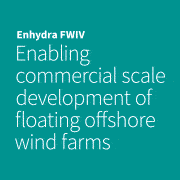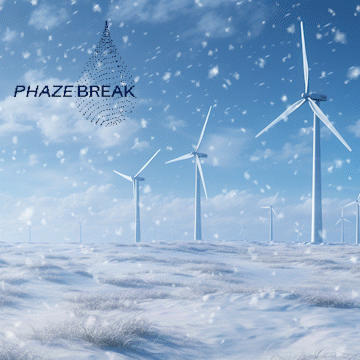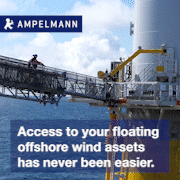As extreme weather breaks with existing seasonal patterns, advises GCube, project owners must look to safeguard projects on a case-by-case basis.
London, 28 February 2019 – GCube Insurance, the leading provider of renewable energy insurance services, has highlighted the need for renewables to prepare for out-of-season extreme weather damage. In recent years, extreme weather events such as wildfires and hurricanes have been occurring outside of expected times and locations and increasing in severity.
Insurers including Swiss Re and Munich Re have reported that 2018 saw the fourth-highest natural catastrophe losses of all time. In renewables, GCube highlights that extreme weather losses jumped to 15% of all claims, which was almost double that of previous years.
As the global climate shifts, the nature of extreme weather is likely to change. This means that damage will be caused outside of season and in unexpected locations. Fraser McLachlan, GCube Insurance CEO, said, “Every so often, the market gets caught out. As the climate changes, so must our expectation of when and where losses will occur.”
In particular, GCube highlights the way that projects are often sited next to areas of high hazard natural catastrophe exposure (Nat Cat), based on historical data. Projects sited on the edge of these zones, where insurance premiums have historically been lower because they have been perceived as non-critical Nat Cat areas, still carry the same degree of risk. McLachlan added, “Realistically, siting a project on the edge of a flood zone or wildfire area is no better than building one in a flood zone or the wildfire zone – it carries almost the same degree of risk.”
In recent years, GCube has seen several losses as a result of inadequate preparation for extreme weather.
- In California, solar panels in a parking lot were damaged by burning cars as a result of wildfires.
- At a solar farm in Texas, unexpected flooding led to damage on fencing and construction infrastructure, causing delays and revenue loss.
- In Taiwan, incorrectly-installed concrete supports led to heavy damage to a solar farm following a storm.
- In Australia, flooding caused major damage to a wind farm and significantly delayed a project during construction.
In light of this, GCube has highlighted the importance of evaluating projects on a case-by-case basis. Asset owners and insurance managers must address each project independently, rather than relying on portfolio-wide risk analyses which may overlook individual project features or weather variability.
This involves ensuring that connected infrastructure and equipment are capable of resisting catastrophe-level events. While turbines and solar plants are increasingly designed to resist tough conditions, such as hurricane-strength winds, this does not mean that connected infrastructure and surroundings do not pose a risk – such as trees touching transmission lines.
Fraser McLachlan added, “Every project has a unique risk profile. The past two years have taught us to think about how that might be affected by changing extreme weather.
“The US as a whole may not be at high risk of wildfires, but any project in California now needs unique consideration of how wildfire will affect surroundings – both on- and off-season. As extreme weather grows more erratic, preparing for the worst is of paramount importance.”
“Apart from anything,” McLachlan noted, “If a project causes third-party damage, the owner might be liable. Considering risk on a project-by-project basis is the best way to avoid this.”
About GCube
GCube is the leading provider of insurance services for renewable energy projects in wind, solar, biomass, wave, hydro and tidal around the globe.
Its specialized focus and robust underwriting authority offers unparalleled marine, property, liability and political risk insurance coverage for all renewable energy risks. With over 25 years’ experience in the renewable energy sector, GCube understands the unique exposures of these power generation projects and assists its clients in identifying, quantifying and mitigating risk efficiently and economically while helping them achieve their business objectives.
To learn more about how we can support your insurance coverage requirements, please visit our website at www.gcube-insurance.com.





























